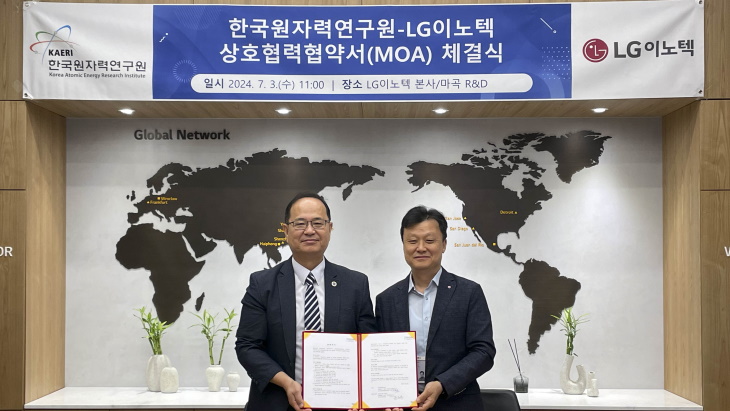
Nuclear batteries - also known as radioisotope batteries - work on the principle of utilising the energy released by the decay of nuclear isotopes and converting it into electrical energy through semiconductor converters.
KAERI succeeded in developing a nuclear battery in 2022, making South Korea the third country to do so, after the USA and Russia. It has since been working to improve the performance of its batteries.
"Research on the development of nuclear batteries as a stable energy source in space exploration is producing results," KAERI said. "However, it has the limitation of being dependent on imports for the core components of the batteries. Recently, the public and private sectors have joined forces to overcome this limitation."
Under a memorandum of agreement signed between KAERI and LG Innotek, the partners will cooperate in developing the design, process, and evaluation technologies for thermoelectric elements for nuclear batteries. They will also collaborate on the design, synthesis, and processing of thermoelectric materials for thermoelectric elements, thereby moving toward domestic production of thermoelectric elements.
KAERI will focus on developing high-power thermoelectric device technology, while LG Innotek, which specialises in manufacturing and selling thermoelectric materials, plans to focus on developing high-efficiency energy conversion thermoelectric materials used in thermoelectric devices and establishing a domestic supply chain.
"In securing independent space exploration technology in the future, dependence on imports of key components is an issue that must be resolved," KAERI said.
Young-Wook Jeong, director of KAERI's Hanaro Quantum Science Institute, said: "In the new space era, we will actively cooperate with private companies to secure core nuclear battery technologies early. We will contribute so that our country can lead international space development cooperation."